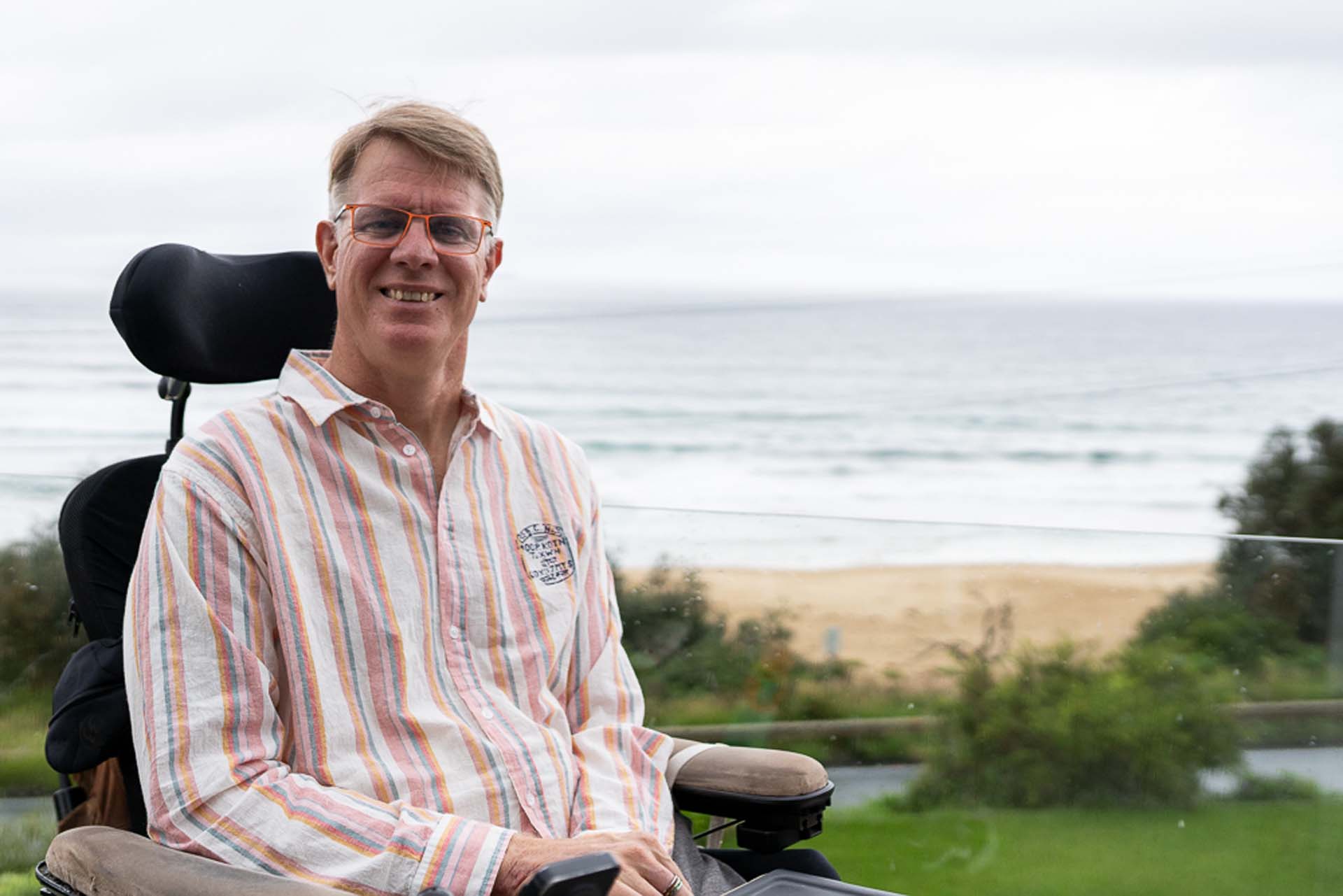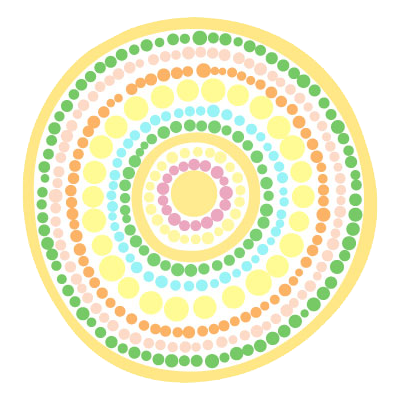Dr Shane Clifton brings not only experience of living with disability in joining the board of The Disability Trust, but a wealth of knowledge to help the mission of creating a more inclusive world.
An Associate Professor of Practice with the Centre for Disability Research and Policy at the University of Sydney, he has also spent four years as director of research and policy at the Disability Royal Commission and is the President of the board of Spinal Cord Injuries Australia.
His life changed in 2010 when, two weeks before his 40th birthday, he broke the fourth and fifth vertebrae in his neck after an accident while riding a bike with his kids in Nowra.
The spinal cord injury left him with quadriplegia, a newfound perspective on life and the determination to make a difference for all people with disability.
“I was completely unfamiliar with disability until my injury,” he said.
“When you have a spinal cord injury, in the first instance, you think your world is over and it does take you a good number of years to start to rebuild your life, but it’s been more than 13 years now and I’ve found the experience of encountering disability and all its diversity to be fascinating and rich.
“I feel quite privileged as a consequence to first of all know and learn from other people with disability and then also to make a small contribution myself.”
Dr Clifton compiled a YouTube video documenting his journey from the accident to learning how to do basic tasks again and re-entering the workforce.
“It’s funny – the things in life that you think are going to hurt you and they don’t and then the thing that looks safe hurts you,” he said.
“Life is about its vulnerability – we all grow dependent on others, we are always at risk of sickness, injury, disability. Ageing is a form of disablement. Although we’re not conscious of how much a part of everyday life it is and we tend to think of it as sort of a marginal issue, disability is actually pretty central to all of our lives in one way or another, even if we’re not aware of it.”
Dr Clifton said people with disability don’t want pity, they prefer empathy and understanding.
“Just because someone has one injury doesn’t mean life is not difficult in one way or another for everyone. So it’s not a comparative game of your life must be harder than mine,” he said.
“Life is just difficult and wonderful all at the same time for all of us.
“We catastrophise disability but for people who live with it, we adjust. Not always because circumstances sometimes work against people and some people’s impairments are different to others. But most people do much better than we think they will and it’s not as though I’m unique in that, that’s for sure.
“It’s just we can’t imagine what life would be like with a disability until you experience it and adjust.
“I’ve met so many interesting people, I’ve had so many great opportunities and if my life hadn’t gone this way, I wouldn’t be connected with The Disability Trust and what an interesting organisation that is.
“Life just takes you in all different directions. I think this is true for all of us in life. It’s often in crisis, for example, that we experience the generosity and goodness of others. Life is a bizarre mix of terrible and good all at the same time.”
Prior to his injury, he worked as an academic in theology and ethics, but he refocused his attention to disability research.
He joined the Centre for Disability Research and Policy at the University of Sydney as an associate soon after his accident and in 2019, he started work full-time for the Royal Commission into Violence, Abuse, Neglect and Exploitation of People with Disability.
After finishing that role last September, Dr Clifton joined Sydney Uni’s Faculty of Medicine and Health, working with occupational therapists.
He recently joined The Disability Trust board along with disability advocate Tom Baxter, healthAbility CEO Agata Jarbin and former TDT CEO Margaret Bowen.
“I’m committed to advocating for the wellbeing of people with disability. All my work has been about the flourishing and rights of people with disability,” Dr Clifton added.
“At the Royal Commission, one of the things that became apparent is that a lot of the negative experiences that people with disability have is connected to ableist attitudes and the failure to see the capacity and strength of people with disability.
“I see The Disability Trust as an organisation that does recognise, value and promote the strengths and capacity of people with disability and that’s a set of values that the rest of our communities can learn from.
“People with disability are presumed to be, by definition, somehow broken and incapable, but in fact, they’re strong, resilient and make a rich contribution to our local communities in all sorts of diverse ways.”


